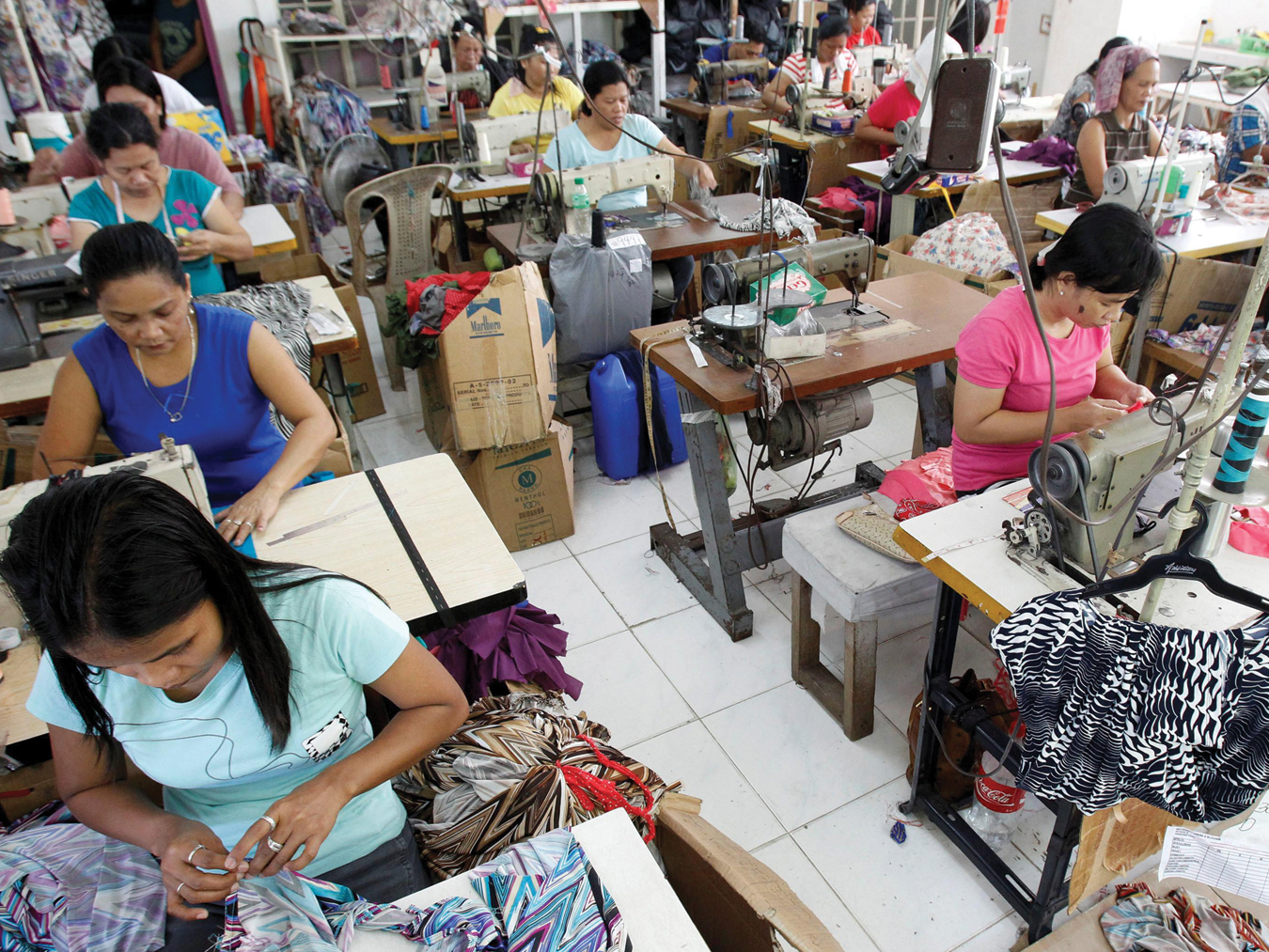The Department of Trade and Industry (DTI) is mulling the establishment of a relief scheme for vulnerable businesses affected by the slowdown due to the rising cases of the coronavirus disease 2019 (COVID-19).
At the same time, DTI Secretary Ramon Lopez said the agency has recommended to President Duterte the issuance of an executive order (EO) that would deputize the Philippine National Police (PNP) and the National Bureau of Investigation (NBI) in conducting visitorial powers to manufacturers, wholesalers, distributors and retailers to ensure no hoarding or overpricing of products in this time of public health emergency.
Lopez said the government is considering increasing penalties to those found profiteering and hoarding.
He said if needed and should it be triggered, companies can seek lower interest rates as well as suspension of loan payments and amortization to cope with the difficulties compounded by COVID-19.
Lopez expects the slowdown in business activities.
Lopez said particularly hit are mom and pop and micro businesses.
He said small retailers can also seek discount on rents of spaces in malls.
But all these are to be decided by banks and mall owners, Lopez added.
“The BSP (Bangko Sentral ng Pilpinas) is the supervisory body (of banks) and these moves are voluntary on the part of banks. If needed, there should be some regulatory relief, ease the terms (of loans) for a few months… if (needed) and when we get to that situation. This is still to be talked about and may not even happen,” Lopez said.
On the side of the DTI, Lopez said international attaches have been mobilized to find alternative sources of raw materials now that China, their main supplier, is yet to get back on its feet.
“The good news is China is resuming after a long quarantine. (Factories) are now operating at a range of 50 to 90 percent; that should ease the pressure on raw materials,” he said.
For retailers, Lopez said the DTI is encouraging the use of alternative platforms like delivery and electronic commerce to keep their stocks moving.
But Lopez warned online sellers who would take advantage of increased demand for face masks and personal hygiene products.
Lopez said DTI will focus on those who not only overprice their products but who sell uncertified, fake and substandard medical and health supplies. These include sanitizers, nebulizers, alcohol and the like.
“The EO is necessary for the deputization also of NBI and PNP for police and intel support.
This also serves as an extra warning for online sellers for overpricing and hoarding,” he added.
Lopez said DTI recommended to the President the issuance of an EO for easier procedure of filing of cases and imposition of stiffer penalties for profiteering,” Lopez said.
Demand for alcohol, hand sanitizers and face masks are rising due to the rapid increase in confirmed cases of COVID-19 in the country.
Under the Consumer Act or Republic Act (RA) No. 7394, overpricing of face masks may be considered as an unfair and unconscionable sales act or practice since it involves taking advantage of consumers in this time of need. The Price Act (RA 7581) also considers this as an act of profiteering.
Both of these laws provide criminal and administrative penalties and sanctions. Under the Consumer Act, if found to have committed an unfair and unconscionable sales act or practice, an administrative sanction of up to P300,000 may be imposed and/or imprisonment of up to one year.
For profiteering, the Price Act provides for the imposition of fine of up to P2,000,000 and/or imprisonment of up to 15 years.
The DTI continues to intensify its monitoring and enforcement efforts to ensure the reasonableness of prices and sufficiency of supply of goods in the market. This includes the basic necessities as price freeze is in effect throughout the country following the declaration of State of Public Health Emergency. During price freeze, prices of basic goods are frozen at their prevailing prices for 60 days which means that no price movement is allowed within this period.




